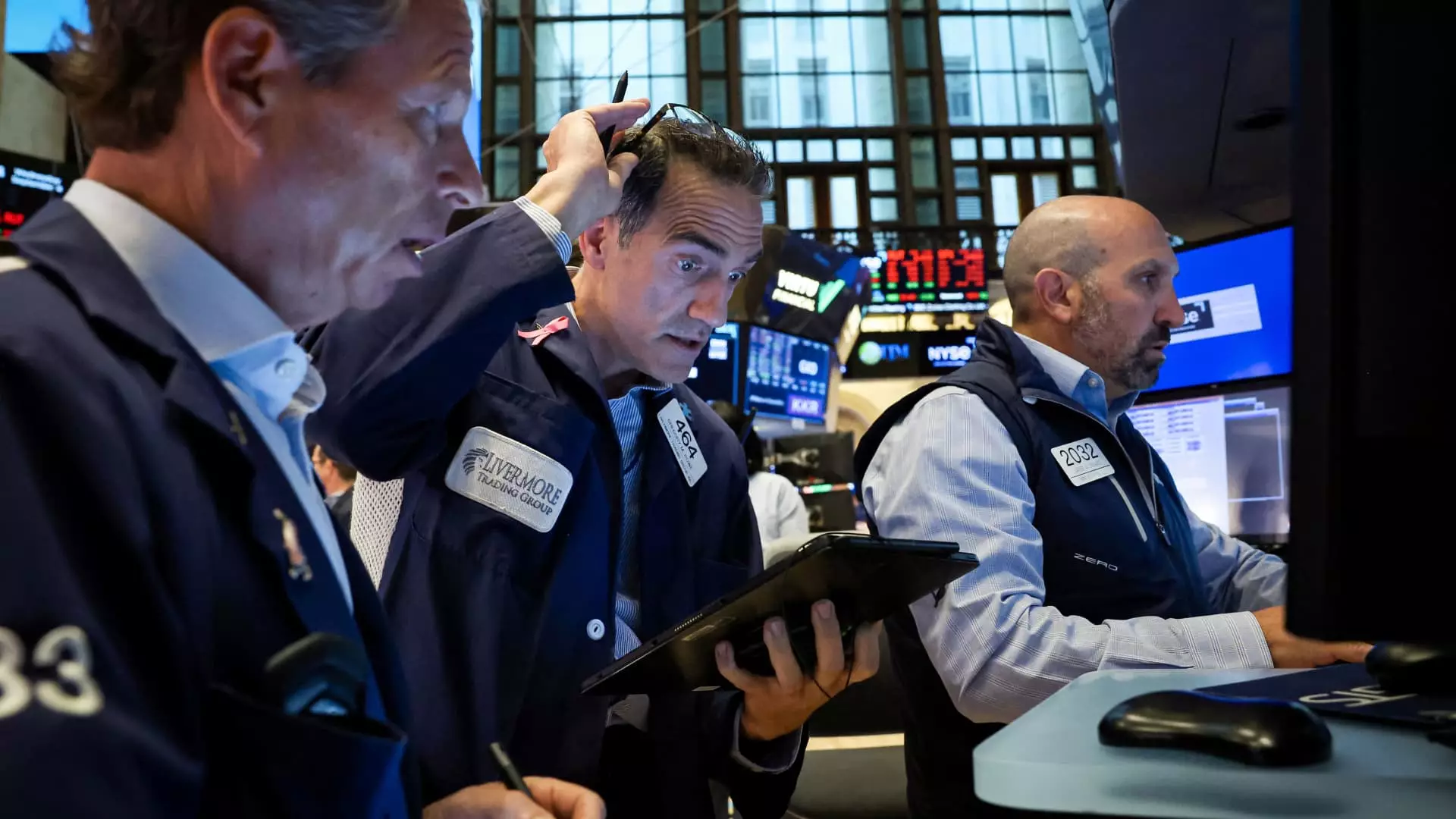The stock market has been reminiscent of a rollercoaster ride over the past few weeks, marked by volatility and shifts that have left investors uncertain. Following our last meeting in August, a mixed bag of market performances defined the period, with the S&P 500 rising by 1.8%, while the Dow Jones Industrial Average and the Nasdaq Composite saw increases of 2.1% and 0.9%, respectively. However, these figures don’t tell the entire story. The underlying sentiment in the market has been one of hesitancy, fueled by concerns regarding the sustainability of the generative artificial intelligence (AI) surge and the Federal Reserve’s impact on monetary policy direction.
The past few weeks have exhibited a high degree of volatility, contrary to the expectations of a steady upward trajectory. The market’s fluctuations can largely be attributed to apprehensions surrounding the enduring nature of the AI boom. Investors are grappling with whether this trend has genuine longevity or if it’s merely a passing phase, thereby influencing trading strategies across the board.
Additionally, the sensitivity of the market to the Federal Reserve’s potential policy shifts has intensified these fluctuations. For instance, the S&P 500 experienced its toughest week since March 2023, primarily due to a weaker-than-expected jobs report for August and significant declines in key tech stocks such as Nvidia. The technology sector’s performance has further compounded investor anxiety, leading to cautious trading behaviors.
In light of these challenges, our investment strategy has adapted. Since our previous gathering, we have strategically reduced our stakes in companies like Eli Lilly and Procter & Gamble and exited our investment in Estee Lauder. This prudent reallocation of funds has allowed us to bolster our positions in more promising sectors, particularly companies benefiting from the AI boom, such as Dover, and clean-energy initiatives like Nextracker, despite the latter’s short-term setbacks.
Growing concerns over potential economic downturns have pushed investors towards more defensive stocks—companies that are expected to withstand adverse economic conditions. Notable members of our portfolio, such as Abbott Laboratories and TJX Companies, have shown resilience and substantial performance gains since the end of August. These companies exemplify how investors are now favoring well-capitalized entities with proven stability.
For instance, Abbott Laboratories has seen a commendable rise attributed to the general market movement toward the healthcare sector, which has increased by 2.2% since our last meeting. Meanwhile, TJX Companies benefitted not only from a strong earnings report but also from its positioning as a recession-resilient discount retailer, attracting more investor interest amidst growing economic uncertainty.
Amidst the backdrop of a fluctuating market, several stocks stood out, showing impressive gains:
1. **Best Buy: A Retail Resurgence**
Best Buy saw shares surge by 17.7%, attributed to favorable comments from Federal Reserve Chair Jerome Powell at the Jackson Hole Symposium. The company’s strong consumer electronics performance, bolstered by an excellent earnings report on August 29, solidified its status as a market favorite.
2. **Amazon: Resilience Amidst Pressures**
Amazon’s 8.5% jump stemmed from a positive analysis from major financial institutions, including JPMorgan and Goldman Sachs, which reaffirmed the stock’s potential in a shifting retail landscape. With CEO Andy Jassy steering the company towards innovation in cloud services and essentials, Amazon seems well-positioned to capture market share even during economic downturns.
3. **TJX Companies: Bargain Retailing Champion**
With an 8% increase, TJX’s stock reflects a broader appeal as a defensive play within the retail sector. Its strength was crystallized following robust quarterly results and an upward adjustment of profit forecasts for the fiscal year.
4. **Advanced Micro Devices: A Comeback Story**
AMD is on an upward trajectory, reclaiming some lost ground with a 6.5% increase spurred by positive AI demand and favorable comments from partner Oracle. This recovery signal reflects belief in the long-term potential of chip manufacturing amid growing AI and cloud computing needs.
5. **Abbott Laboratories: Health Care Stability**
Abbott’s stock added 6.1%, benefitting from its recent launch of an over-the-counter continuous glucose monitor, alongside the broader healthcare sector’s defensive appeal.
Conclusion: Navigating a Volatile Market
As we conclude this analysis, it is clear that the current market reflects a delicate balance between optimism surrounding select stocks and caution stemming from broader economic concerns. Investors must remain agile and informed, recognizing when to pivot towards more stable investments while also identifying opportunities in growth sectors demonstrating resilience.
Our recent activity illustrates a responsive investment philosophy that seeks to capitalize on market volatility. As uncertain waters lie ahead, maintaining a well-diversified portfolio anchored in robust defensive stocks and high-potential growth names will be crucial in navigating this complex landscape. By staying disciplined and proactive, we can turn market challenges into strategic opportunities.

